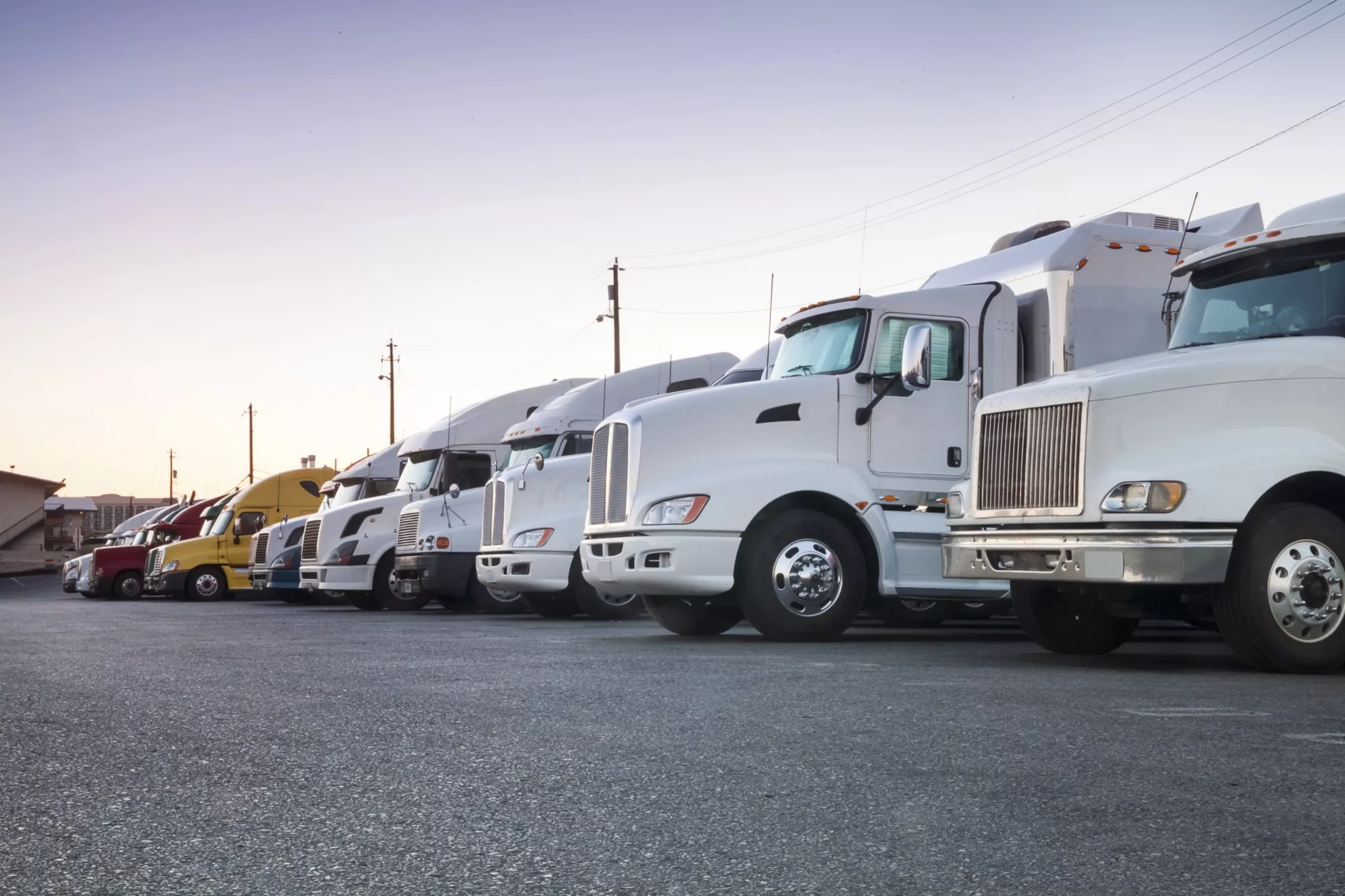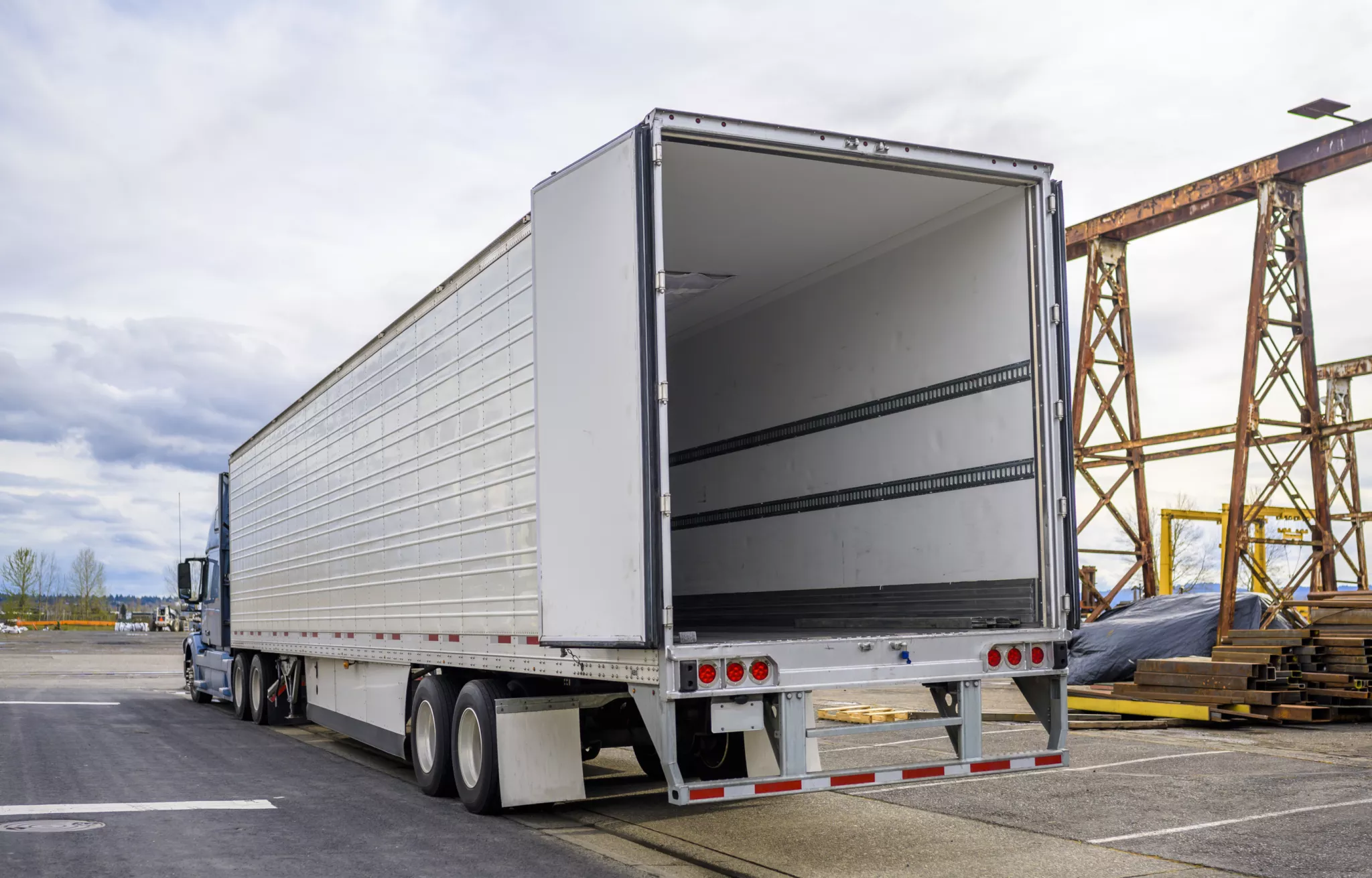Truck driving is more than a profession. It’s a culture with its language and specialties. Truck driver slang is an essential aspect of it. Drivers, dispatchers, and fleet managers use it to connect and share information. Whether it’s navigating road conditions, coordinating routes, or just bonding with other workers, this slang can simplify and streamline the process.
Truck driver lingo includes a range of topics, from the types of trucks and roles to safety alerts and road experience. The article explores the meaning of trucker terminology, its use, and the commonly used examples.

General Truck Driver Slang
Truck drivers have a unique way of communication with each other, brokers, and fleet managers. This specialized language, known as truck driver slang, helps drivers stay connected and share important information promptly. Understanding this slang is essential for anyone who wants to understand this sector better.
Trucking slang includes a mix of code words, phrases, and abbreviations. In particular, they are used over CB radios, providing clear and concise communication. Truck lingo is also used in everyday conversations to share some information quickly about road conditions, traffic, or potential risks.
Examples of trucker terminology are hammer down (to drive at full speed) or backdoor (the area behind a truck). As for obstacles on the road, truckers may use an alligator (a chunk of blown tire) or dragonfly (a truck struggling to haul a heavy load).
Drivers can also use phrases related to the experience on the road. Reading the main is used when a driver listens to a CB radio without taking part; yardstick refers to mile markers along the highway while checking their six means, looking behind for any potential dangers, such as speeding cars or law enforcement.
Truck driver lingo is about more than quick information sharing. It’s about being a part of a community. Thus, learning the slang can be a rife of passage for new drivers, helping them integrate.
CB Radio Lingo
Citizen Band (CB) Radio terminology is a basis of truck driver slung, forming a crucial part of it. This slang type evolved to meet the demand for exchanging important information. Usually, this involves safety and navigation on the road. This lingo is crucial for truckers, keeping them connected and informed on the road.
Common CB Radio Terminology
- 10-4. This means “message received/understood”. It’s a simple option to acknowledge the information was heard.
- Breaker 1-9. It signals the start of a transmission on channel 19, the most used among truckers. With it, drivers ensure they’re on the right channel to communicate.
- Smokey Bear. This term refers to a police officer, especially one who enforces speed limits.
- Bear trap. It describes a speed trap set by the police. Drivers use it to warn each other about control zones.
- Comeback. This term means a request to repeat was what just said. It’s useful in case of radio interference or background noises.
- Hammer down. This phrase is a declaration or command to drive as fast as possible when truckers need to make up time or when the road is clear.
- Full-grown. It refers to an authorized state trooper or highway patrol officer. This term indicated the level of an officer’s authority.
- Got your ears on? This means a check if someone listens to the CB radio.
Specific Truck Types and Roles
Trucker terminology covers truck types and roles as well. This part of trucker slang helps identify the type of vehicle, such as a reefer or a dry van. In addition, these terms highlight the truck’s role in the transportation process, such as regional deliveries or specialized cargo.
Knowledge of this lingo helps drivers, dispatchers, and other logistics workers to exchange information and streamline their operations.
Common Truck Types in Trucking Slang
- 18-Wheeler. This name is for identifying a large truck with 18 wheels, a combination of a tractor-trailer.
- Bobtail. This term refers to a truck without a trailer. Usually, such a truck is going to pick up a trailer or just dropped it off.
- Reefer. It’s a term for a refrigerated trailer used for temperature-sensitive goods.
- Flatbed. A flatbed means a truck with a flat trailer without sides or a roof. This type is usually used to transport oversized or irregularly shaped loads.
- Tanker. In trucking lingo, this means a truck that carries liquids or gases. They are used for shipping fuel, chemicals, or other hazardous materials.
- Day cab. It’s a type of truck that doesn’t have a sleeping compartment. It’s used for short-haul trips.
- Sleeper cab. This truck is equipped with a sleeping area behind the driver’s seat. It’s used for long-haul trips where the driver has to rest on the road.
- Hotshot. It refers to a smaller, more agile truck used for time-sensitive deliveries.
- Local drivers. This term is used for truckers who deliver the cargo within a specific region.
- Over-the-road (OTR) drivers. They cover long-haul routes across multiple states, staying on the road for days or weeks.
Roles in Trucking and Their Slang
- Owner-operator. This refers to a truck driver who owns and operates their truck. This role involves a big responsibility for business management. In trucker terminology, it’s often referred to as a step up from a company-employed trucker.
- Company driver. It means a trucker who works for a company and operates a company-owned truck. This role means fewer responsibilities than an owner-operator, as the company bears maintenance, insurance, and other expenses.
- Team driver. This term is used for drivers who work in pairs, driving the same truck. It allows to keep moving without stopping. They work mainly for long-haul routes.
- Freight hauler. It’s a general term for a truck driver who transports cargo. This meaning covers most truckers, whether they’re hauling dry goods, refrigerated items, or hazardous materials.
- Heavy hauler. In trucking slang, it means a driver who specializes in transporting oversized or overweight loads.
These terms aren’t just technical; they ensure efficient communication of truckers and dispatchers. Understanding the slang and knowing the main terms ensure smooth operations.
Law Enforcement and Safety Terms
Safety is a main priority of the trucking industry. Thus, truck driver slang reflects its crucial role. Trucking lingo includes a variety of terms that relate to law enforcement, road hazards, and overall safety. It helps truckers to stay updated on road situations, avoiding fines, delays, and accidents. In particular, the list of such terms includes:
- Smokey. This term refers to state troopers patrolling highways. In trucker communication, it alerts drivers to be cautious about speeding.
- Bear. In truck driver language, this term means any police officer. Still, it’s mostly used for highway patrol. This term has two categories. Full-grown bear refers to a highway patrol officer in a marked vehicle. Plan wrapper means an unmarked police car that is difficult for drivers to identify.
- The coop is open. In trucking slang, a coop refers to a weigh station where trucks are inspected for compliance with regulations. The phrase means truck drivers should prepare to stop for inspection potentially.
- The coop is closed. It means the weight station isn’t in operation. Thus, truckers can bypass it without a stoppage.
- Road pizza. In truck driver slang, this term refers to roadkill, animals hit by vehicles.
These road safety terms and highway patrol slang are essential part of truck driver language. They help drivers navigate the road and avoid potential hazards.
Trucker Experiences and Situations
Life on the road involves various challenges. Truck driver language reflects these issues, allowing the industry’s workers to communicate. Understanding these truck driver phases is crucial for safety and a sense of community among drivers.
- Dragon wagon. It refers to a tow truck or a wrecker and is used when a truck needs assistance after a breakdown or accident.
- Good buddy. Earlier, this phrase was a term of endearment among truckers. Nowadays, it has changed its meaning to a more derogatory one. It’s essential to stay updated on such meaning shifts.
- Parking lot. In CB Radio Terminology, this term refers to a major traffic jam where vehicles are at a standstill. With this term, drivers warn each other to avoid delays.
- Comic book. It refers to a driver’s logbook that includes their daily activities.
- Kangaroo hop. A situation when a truck moves unevenly due to an unsynchronized clutch or rough terrain.
- Rocking chair. It’s a position where a truck moves between two others. This is considered a safe position, as the vehicle is protected from sudden stops or hazards.
- Shiny side up. This term is used to wish a safe trip. It means keeping the truck on its wheels, with the top of the truck facing up.
- Driver’s side. An important term that refers to the left side of the truck. It’s used in communication about blind spots and maneuvers.
- E-log. A short form of the electronic logbook, a digital device that records a drivers’ hours of service.
- Paid by the mile or paid by the hour. This means a compensation method. The first one foresees payment based on the distance, and the second is used on the time spend behind the wheel.
Trucker Names for Cities
In addition to words and phrases for situations on the road, truckers developed unique nicknames for cities. It allows one to identify locations quickly with a reference to the cultural or historical significance of the area. Understanding these terms is crucial for effective communication, whether about routes, weather conditions, or fuel stops.
- Steel City or Steel Town. It’s the name of Pittsburgh, Pennsylvania, known as the heart of the US steel industry.
- Beantown. The nickname of Boston, Massachusetts, refers to its colonial history when baked beans were the main staple.
- Shaky town. It refers to Los Angeles, California, highlighting the earthquakes that occur in the region.
- Beer city or Brew city. Milwaukee, Wisconsin, earned this name amid its beer brewing history.
- Windy city. This name refers to Chicago, Illinois, known for its breezes and unexpected weather changes.
- The Gateway. Truck drivers use this tame for St. Louis, Missouri, because of the famous Gateway Arch and the city’s role as the gateway to the west.
- Music City. Nashville, Tennessee, is called Music City because of its music scene.
- Choo-Choo. Chattanooga, Tennessee, is called like that amid its history as a major rail hub.
Conclusion
Truck driver slang is not only unusual words and phrases. It’s also a crucial tool for communication and information exchange that keeps truckers connected on the road. This language also streamlines operations and establishes a feeling of the community.
Knowing trucking slang is essential for all specialists in the trucking industry, from drivers to business owners. If you want to succeed in this field, knowing this lingo is not just helpful – it’s an essential aspect if becoming a part of the community.







